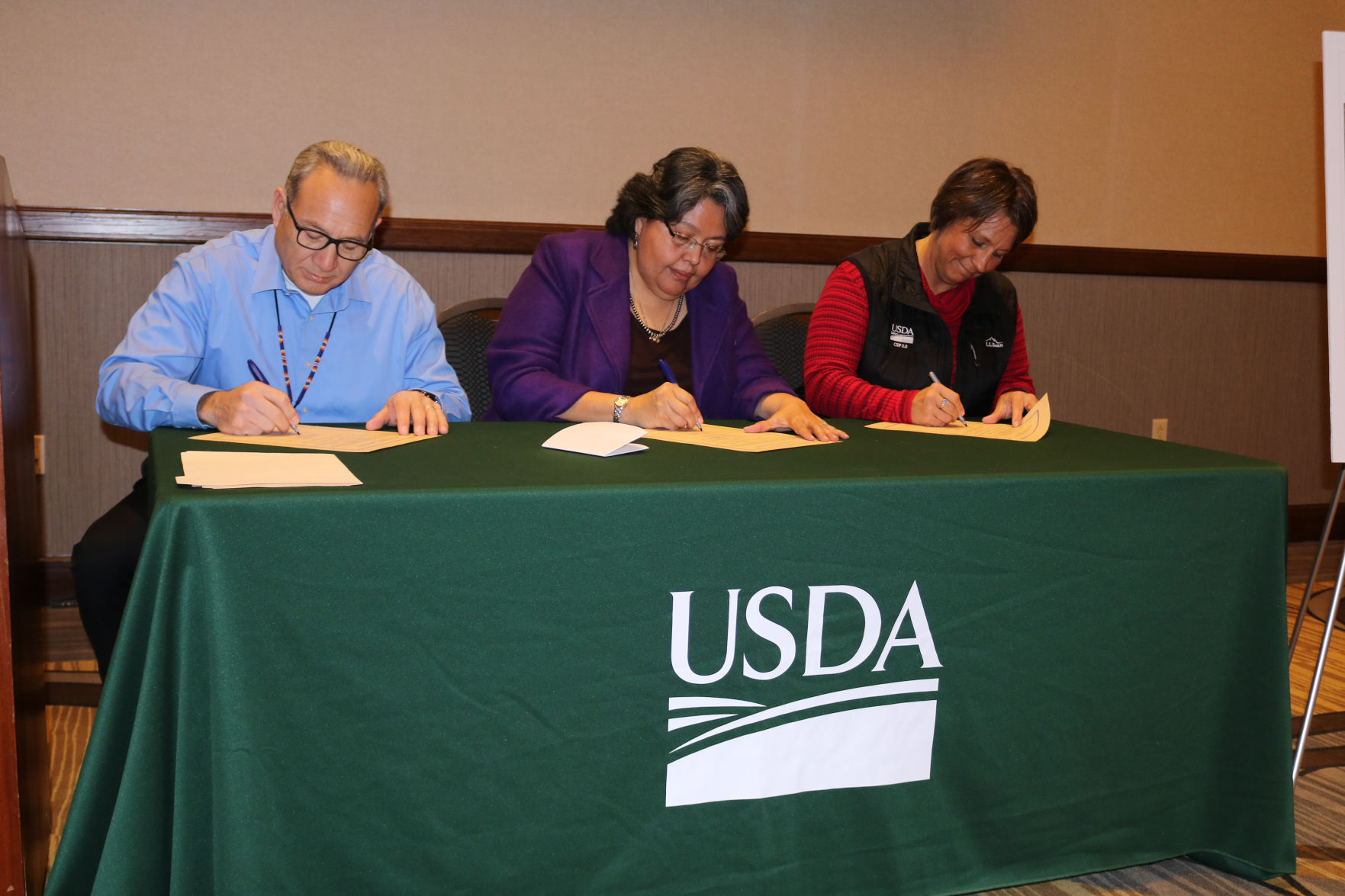The U.S. Department of Agriculture’s Natural Resources Conservation Service Kansas State Conservationist Karen A. Woodrich; Prairie Band Potawatomi Nation Tribal Chairman Joseph Rupnick; and U.S. Department of Interior’s Bureau of Indian Affairs Superintendent Antoinette Houle recently signed a 30-year contract which allows for the restoration of degraded wetlands on PBPN Tribal land.
This contract is the first of its kind in Kansas where the PBPN, BIA, and NRCS restore degraded wetlands on Tribal land, and provide for the management of the wetland, wildlife and related cultural significance of the restored wetlands on a long-term basis. According to Jamie Johnson, NRCS District Conservationist, Holton, approximately 30 acres will be restored and then protected and managed for the contract life through the NRCS’s Agricultural Conservation Easement Program-Wetland Reserve Easement.
“NRCS places special emphasis on working with tribes and building tribal partnerships; we are excited for the opportunity to work with the Prairie Band Potawatomi Nation to restore their wetland,” said Johnson. After an initial meeting, NRCS conservation planners, including Johnson, walked the PBPN property to evaluate the condition of the wetland, associated floodplains and uplands, and discussed their goals.
NRCS’s ACEP-WRE addresses former or degraded wetlands that have been used to produce food and fiber, where the hydrology has been significantly modified and will be substantially restored. NRCS will work with the PBPN to develop the wetland restoration plan. Wetlands are one of nature’s most productive ecosystems providing many ecological, societal and economic benefits.
“The Prairie Band Potawatomi Nation is thankful for the opportunity to return this portion of land back to its natural wetland condition and for the area’s high potential to provide environmental education,” said Rupnick. “We look forward to having our youth and the community visit the site and experience direct learning about the unique attributes a wetland provides for water resources and the environment. Over the long-term, the restoration will provide a Tribal land preserve. The preserve is envisioned to offer recreational, cultural and educational opportunities which can enhance the quality of life for Tribal citizens.”
Woodrich added, “protecting these lands preserves America’s heritage, natural resources and open space.” Easements are also important tools for people who are trying to improve the management of their land. This partnership with the Prairie Band Potawatomi Nation is instrumental in achieving greater wetland acreage and maximizing benefits to the tribe and local community,” she concluded.
